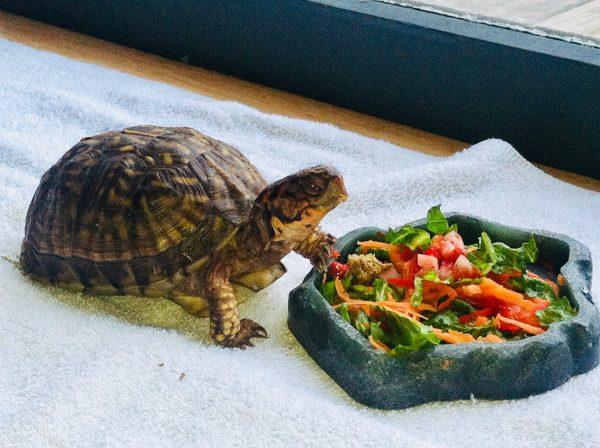-
About
- Leadership & Faculty
- News & Events
-
Academics
- Graduate
- Advanced Clinical Training
- Continuing Education
- Academic Departments
- Academic Offices
- Simulation Experiences
-
Student Life
- Offices
-
Research
-
Hospitals & Clinics
- Emergency Care
- Hospital Services
-
Community Outreach
- Volunteer
Reptiles 101: Adopting with Care
With National Reptile Awareness Day just around the corner, thousands of bearded dragons, leopard geckos, snakes, and more are bound for new homes.

With National Reptile Awareness Day just around the corner, thousands of bearded dragons, leopard geckos, snakes, and more are bound for new homes. But Jennifer Graham, an associate professor and the director of zoological companion animal medicine at the Cummings School, wants to share important—even life-saving—information before you adopt.
Handle with Care
Not all reptiles are suitable for all households. Many species shed salmonella bacteria and should not be handled by or reside with children under five or those who are immunocompromised. Certain species don’t even like to be touched, says Graham. “It stresses them out. So they’re not a great a choice for children.”
Eight Glasses a Day
“A common thing we see in our patients is chronic dehydration,” says Graham. “Which can lead to kidney disease.” Many reptiles aren’t native to New England and generally need a humid home. “They come from rainforests and humid environments, so a dry Massachusetts winter is hard on them.”
Plenty of Sun
“Reptiles need full-spectrum light to absorb calcium,” Graham says. Important for the heart, gut, and bones. Full-spectrum lightbulbs mimic the UV rays of the sun. Research the bulbs needed for your specific species, and remember to change them every six months—even if the light is still shining three years on, it may have stopped producing the right wavelengths.
Vitamins, Vitamins, Vitamins
Just as humans need a well-balanced diet, so do reptiles—that means “gut loading” or giving the food your reptile will eat plenty of nutrition. Dusting supplements on top of these insects, like a calcium or multivitamin, will help ensure maximum bone density.
All-Natural Habitat
Remember that ball your neighbor’s dog chewed up and swallowed? Reptiles are no stranger to intestinal obstructions, either. “Be careful of what you put in the cage when building their homes. They can and will try to eat it!”
The most common illnesses reptiles come in with are preventable nine out of 10 times. “When they’re sick, they hide it well,” Graham says. However, a big bonus of adopting one of these unique creatures: they don’t shed hair or dander. Perfect for those with allergies. They have personalities and many come when called by name. Graham herself is a mom to a three-toed box turtle named Little T. “They’re a lot of fun and can be good pets,” she says, “but they need a special owner who can provide for their unique needs.”
Department:
Foster Hospital for Small Animals